Find Help
More Items From Ergsy search
-
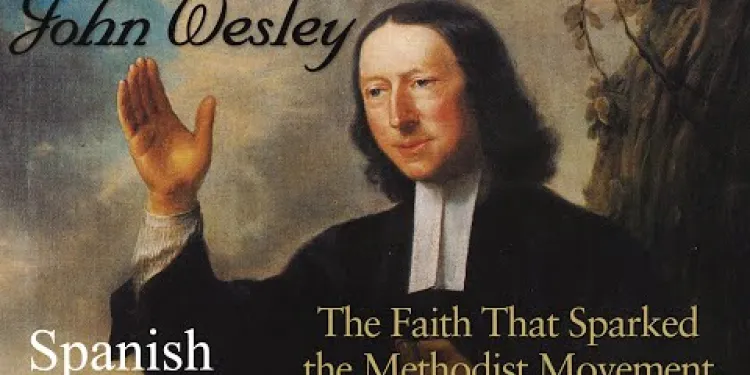
John Wesley: Faith That Sparked the Methodist Movement | Full Movie
Relevance: 100%
-

John Wesley: Faith That Sparked the Methodist Movement | Full Movie
Relevance: 99%
-

What is the Bauhaus Movement?
Relevance: 19%
-

How does Huntington's disease affect movement?
Relevance: 17%
-
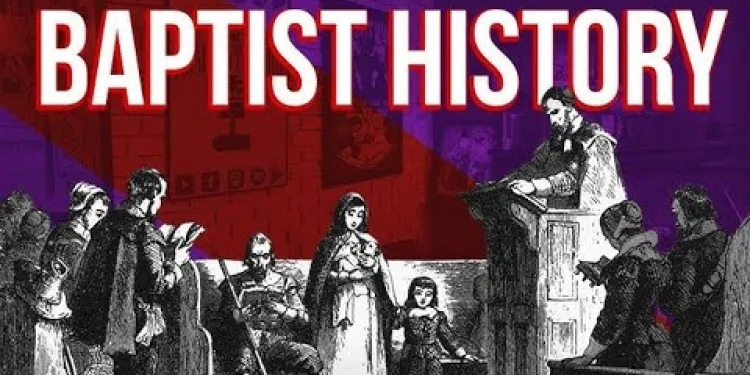
The history of the Baptist Church and Anabaptist: The Good The Bad and the Ugly
Relevance: 13%
-

Bowel Cancer
Relevance: 12%
-

What is the best first aid certification to obtain?
Relevance: 9%
-

Sikhism Explained
Relevance: 8%
-

Is it possible to have a religious service at the crematorium?
Relevance: 7%
-

What legal obligations do directors have during a dispute?
Relevance: 7%
-

What is fiduciary duty and how does it relate to director disputes?
Relevance: 7%
-

Where can I learn First Aid?
Relevance: 6%
-
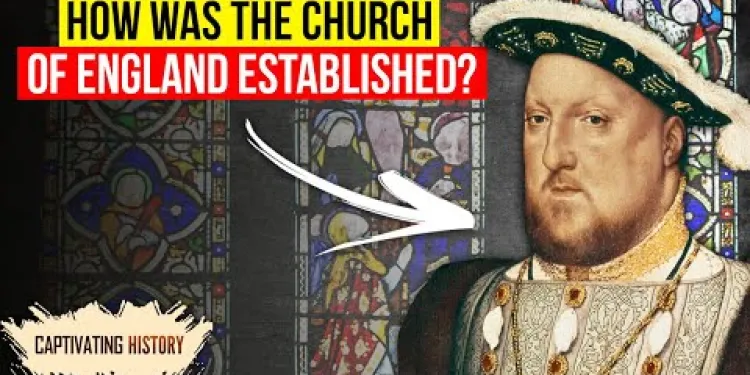
How Was the Church of England Established
Relevance: 6%
-

What historical event is the bubonic plague known for?
Relevance: 6%
-

Where can I learn first aid online?
Relevance: 6%
-

Constipation: Tips for those suffering with constipation
Relevance: 6%
-

What is Huntington's disease?
Relevance: 5%
-

What are the symptoms of Huntington's disease?
Relevance: 5%
-

How do mixed exercises aid in functional fitness?
Relevance: 5%
-

Are there free resources for learning first aid?
Relevance: 5%
-
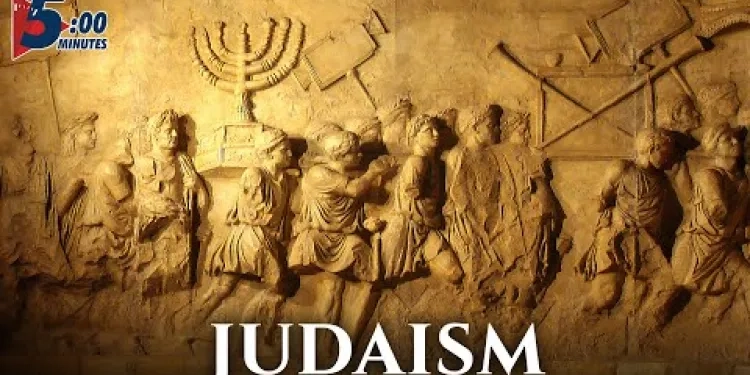
Origin of Judaism - A Brief History | 5 MINUTES
Relevance: 5%
-

Is mediation a viable solution?
Relevance: 5%
-

Are there mobile apps that teach first aid?
Relevance: 4%
-

Can anyone be buried in a woodland burial site?
Relevance: 4%
-

What is a derivative lawsuit?
Relevance: 4%
-

Survivor of an Abdominal Aortic Aneurysm rupture appeals for men to take up NHS Screening Programme.
Relevance: 4%
-

How do mixed exercises enhance flexibility?
Relevance: 4%
-

How can I practice first aid skills effectively?
Relevance: 4%
-
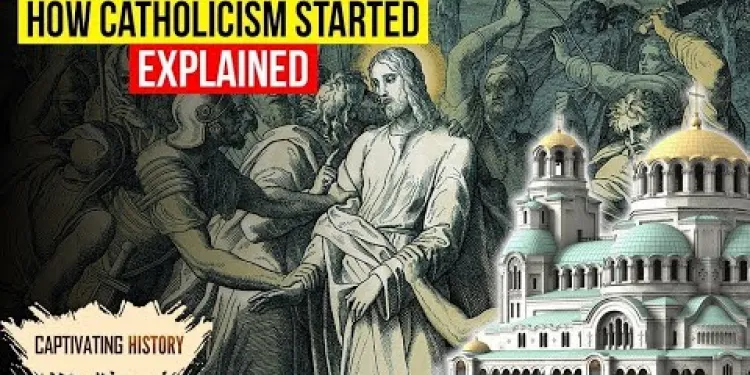
How Did Catholicism Start?
Relevance: 4%
-

Where is the pain located when you have appendicitis?
Relevance: 4%
-

What is Parkinson's disease?
Relevance: 4%
-

Bleeding from the bottom rectal bleeding
Relevance: 4%
-

Do first aid certifications expire?
Relevance: 4%
-

Shoulder pain | NHS
Relevance: 4%
-

Pilates for back pain: Seated waist twist | NHS
Relevance: 4%
-

Does Baxdrostat interact with dietary supplements?
Relevance: 4%
-

What is Neurodiversity?
Relevance: 4%
-

Cerebral palsy | NHS
Relevance: 4%
-

What are the benefits of insoluble fiber?
Relevance: 4%
-

Frozen Shoulder Assisted Lateral Rotation
Relevance: 4%
John Wesley: Faith That Sparked the Methodist Movement
The Early Life of John Wesley
John Wesley, born on 28 June 1703 in Epworth, Lincolnshire, was a significant religious leader whose work laid the foundations of the Methodist movement. Educated at the Charterhouse School and Christ Church, Oxford, Wesley was deeply infused with the teachings of the Anglican tradition. However, his spiritual awakening, which took place during a stormy sea voyage and his later interaction with the Moravians, marked the beginning of his vocation that would ignite a religious movement.
The Founding of Methodism
In the early 18th century, Wesley, alongside his brother Charles Wesley, initiated a movement that emphasised a personal experience of faith and piety. After returning from a missionary expedition to America and experiencing a conversion at a Moravian meeting in Aldersgate Street, London, Wesley felt compelled to preach salvation by faith as a living experience. This movement soon spread across the United Kingdom, attracting thousands with its inclusive and revivalistic approach.
Preaching and Social Impact
John Wesley's approach was characterised by preaching in open fields and local societies, aiming to reach those who often felt excluded from traditional parish settings. His itinerant lifestyle and commitment to preaching 40,000 sermons garnered a wide following. Beyond religious teachings, Wesley established schools, orphanages, and his efforts in social reform were pioneering, laying the groundwork for the social justice profile of modern Methodism.
Legacy in the United Kingdom
John Wesley passed away in 1791, but his legacy continued to influence religious practice and social ethics within the United Kingdom. The Methodist Church, established posthumously, became a major denomination, advocating for education, healthcare, and social justice. Wesley's emphasis on practical divinity and community service remains a significant contribution to British cultural and religious life.
John Wesley: A Leader Who Started the Methodist Church
John Wesley's Early Life
John Wesley was born on 28 June 1703 in a place called Epworth, in Lincolnshire. He became an important leader in religion and helped start the Methodist Church. John went to school at the Charterhouse and Christ Church at Oxford. He learned a lot about the Anglican Church. But his true journey started on a ship in a big storm. There he met some Moravian people, which changed his life and made him want to begin a religious movement.
The Start of Methodism
In the early 1700s, John and his brother Charles began a new religious movement. They wanted people to feel close to God. After a trip to America and a special meeting in Aldersgate Street, London, John felt he needed to tell everyone about faith in a way that was alive and personal. Many people joined him, and the movement spread all over the United Kingdom because it welcomed everyone.
Preaching and Helping Society
John Wesley liked to preach in fields and places where many people could hear him. He wanted to talk to people who were often left out of normal churches. He traveled a lot and preached about 40,000 times. Besides talking about faith, John helped set up schools and places for children without parents. He cared about making life better for people, and this helped shape the Methodist Church's focus on helping society today.
John Wesley's Legacy
John Wesley died in 1791, but the things he started kept going. The Methodist Church grew into a big part of religion and helped in education, healthcare, and fairness in society. John's ideas about helping others and being part of a community still influence people in the United Kingdom today.
Tools and Tips
To better understand texts like this, try reading out loud, using a ruler or finger to follow along, and taking breaks to think about what you've read. Talking with someone about the text can also help you to understand it better.
Frequently Asked Questions
Who was John Wesley?
John Wesley was an 18th-century Anglican cleric and theologian who is credited with founding the Methodist movement within Christianity.
What sparked the Methodist movement?
The Methodist movement was sparked by John Wesley's emphasis on the need for a personal experience of faith, his itinerant preaching, and his use of small groups known as 'class meetings' to support spiritual growth.
What was John Wesley's early life like?
John Wesley was born in 1703 in Epworth, England. He was the son of Samuel Wesley, a rector, and his mother, Susanna, who were influential in his education and religious upbringing.
What role did the Holy Club at Oxford play in his life?
The Holy Club was formed by John and Charles Wesley during their time at Oxford. It was a group focused on studying the Bible and living a disciplined Christian life, which laid the foundations for the Methodist movement.
Why was John Wesley's trip to America significant?
Wesley's mission trip to America was significant because it exposed him to Moravian missionaries, whose faith and practice left a deep impact on him, leading to an evangelical conversion upon his return to England.
What was the Aldersgate experience?
The Aldersgate experience refers to a pivotal moment on 24 May 1738, when Wesley felt his heart 'strangely warmed' as he listened to a reading of Martin Luther's preface to the Epistle to the Romans, marking his conversion experience.
What is field preaching, and why did Wesley use it?
Field preaching was a method of spreading the Gospel outside of church walls, often in open-air settings, which Wesley used to reach large audiences who were outside the traditional church.
What are some key beliefs of Methodism?
Methodism emphasizes salvation by faith, personal holiness, social justice, and the importance of works as an expression of faith. It encourages a disciplined, practical approach to spirituality.
How did John Wesley manage organisational aspects of the Methodist movement?
Wesley implemented an organisational structure with societies, classes, and bands that facilitated pastoral care, spiritual growth, and mutual accountability among members.
Why did John Wesley travel extensively for his ministry?
Wesley believed in taking the message of the Gospel directly to people, irrespective of location, which led him to travel extensively across the British Isles on horseback, covering thousands of miles.
How did John Wesley contribute to social reform?
Wesley advocated for social issues such as education, prison reform, and the abolition of slavery, integrating the practice of his faith with social action.
What were John Wesley's views on education?
Wesley was a proponent of education for all, establishing schools and using literacy as a tool for empowerment. He regarded knowledge as vital to spiritual and social development.
How did John Wesley's relationship with the Church of England evolve?
Despite his foundational role in Methodism, Wesley remained a lifelong Anglican priest and sought to reform the Church from within, rather than creating a separate denomination, which came posthumously.
What is the significance of the Methodist hymnal?
The Methodist hymnal, shaped significantly by Wesley and his brother Charles, played a crucial role in worship and teaching theology through music, making it accessible to all believers.
What legacy did John Wesley leave behind?
Wesley's legacy includes the global Methodist Church, his influence on Christian spirituality and social justice, and his innovative approaches to ministry and evangelism that continue to inspire.
Who was John Wesley?
John Wesley was a person who helped start a group called the Methodists. He was born a long time ago, in 1703. John loved helping people learn about God. He traveled to many places to talk about being kind and loving.
John Wesley believed it was important to pray and sing songs to feel close to God. He wanted people to take care of each other.
If you want to know more about John Wesley, you could ask someone to read about him with you, or watch videos about his life. You can also use pictures to help understand his story better.
John Wesley was a church leader from a long time ago, in the 1700s. He helped start the Methodist Church, which is a part of the Christian religion.
What started the Methodist movement?
The Methodist movement began because people wanted to follow Jesus in a new way. They wanted to pray, sing, and help each other in a loving group.
If you find reading hard, using pictures or talking with someone about these questions can help.
John Wesley started the Methodist movement. He thought it was important for people to really feel their faith. He traveled around to talk about this. He also made small groups called 'class meetings' where people could come together to learn and help each other grow spiritually.
If you find reading hard, try using tools like audiobooks or text-to-speech apps that can read the words out loud for you. You can also ask someone to read with you.
What was John Wesley's early life like?
John Wesley was a boy a long time ago.
He had a big family with many brothers and sisters.
He lived in England, in a village.
John's dad was a priest, and his mom taught him to read and write.
They did not have much money, but they were happy and loved each other.
If you want to learn more about John, you can try looking at pictures or watching videos. They can help you understand his story better.
John Wesley was born a long time ago in 1703. He was born in a place called Epworth in England. His dad was Samuel, who worked in a church. His mom, Susanna, taught him a lot about school and believing in God.
What did the Holy Club at Oxford do for him?
John and Charles Wesley started a group called the Holy Club when they were at school in Oxford. This group read the Bible and tried to live good Christian lives. This was the beginning of something called the Methodist movement.
Why is John Wesley's trip to America important?
John Wesley was a man who started a new church group. He went to America a long time ago. His trip was important because he helped a lot of people learn about God. He talked about being kind and doing good things. This made many people happy and helped them live better lives.
If you want to know more, here are some tips:
- Look at pictures or videos about John Wesley's trip.
- Talk to someone who knows about history to help explain.
- Read a simple book about John Wesley and his work.
Wesley went on a trip to America. This trip was very important. He met some people called Moravian missionaries. Wesley really liked how strong their faith was and how they did things. This made him think about his own beliefs. When Wesley went back to England, he felt a big change inside. His faith became much stronger.
What happened at Aldersgate?
The Aldersgate experience is about a special day. On 24 May 1738, a man named Wesley felt his heart become warm. This happened when he heard someone read from a book by Martin Luther. It was a big moment for him because it changed his beliefs.
If you want to learn more about special moments, you can talk to someone who helps you learn or use tools like picture books or videos to make it easier to understand.
What is field preaching, and why did Wesley do it?
Field preaching is when someone talks about God outside, in a big open area, instead of in a church.
John Wesley was a man who wanted to tell lots of people about God. He did field preaching because more people could come and listen to him outside. It helped him tell more people about God’s love.
Helpful Tips:
- Use short sentences to understand better.
- If you find a word hard, ask someone to explain it or use a picture dictionary.
- Try reading with a friend or family member to make it more fun.
Field preaching is telling people about God outside, not in a church. John Wesley did this to talk to many people who did not go to church.
What do Methodists believe?
Methodism teaches people to have faith and believe. It says being good and helping others is important. They think it’s good to do kind things because of your faith. Methodism also likes people to be organized and live a good life.
To help understand this, you can use a dictionary or ask someone to explain difficult words. It might also help to use an app that reads words out loud.
How did John Wesley organise the Methodist group?
John Wesley started a group called Methodists. He was a great organiser. Let's see how he did it.
- Groups: He made small groups to meet often.
- Meetings: He planned regular meetings for everyone.
- Rules: He set simple rules to help people know what to do.
- Travel: He traveled to visit and help different groups.
If you want to learn more, try:
- Watching videos about John Wesley.
- Using apps that read texts aloud.
Wesley set up a plan to help people grow and care for each other. There were groups called societies, classes, and bands. These helped people look after each other, learn about their faith, and support one another.
Why did John Wesley travel a lot for his work?
John Wesley wanted to tell many people about his beliefs. This is why he traveled to many places. He wanted to talk to as many people as he could.
Tips that can help understand:
- Break it into small parts.
- Talk about it with a friend.
- Use pictures to help understand.
Wesley wanted to tell everyone about the Gospel. He thought it was important to go to them, no matter where they lived. So, he rode a horse and traveled all over the British Isles. He went very far and wide.
If you are reading and find it tricky, here are some things that might help:
- Ask someone to read it with you.
- Use your finger to follow along the words.
- Take breaks if you feel tired.
What did John Wesley do to help make society better?
Wesley worked to make the world a better place. He cared about three big things: helping people learn, changing prisons to be fairer, and ending slavery. He believed in helping others because of his faith.
What did John Wesley think about school and learning?
John Wesley had ideas about how people should go to school and learn. Let's explore what he thought!
He wanted everyone to read and write well.
John thought it was important to learn about God and the world, too.
He believed learning could help people make better choices.
You can use: - Audio books to listen while you read. - Pictures to help understand words.
Wesley believed everyone should go to school. He started schools to help people learn to read and write. Wesley thought learning was very important. It helps people grow in their heart and mind.
How did John Wesley's friendship with the Church of England change over time?
John Wesley was a man who loved the Church of England. He was a preacher and he wanted to help people know about God.
At first, he worked with the Church of England. He preached in the church and followed their rules.
But over time, John had new ideas. He started to preach outside, not just in churches. This was different and some people in the Church of England were not happy.
So, John's relationship with the Church of England changed. He still loved the church, but he also started something new. This new group was called Methodists. They were still friends, but they did some things differently.
To help understand this story, you can use pictures or talk with someone about it. Tools like audiobooks can also help you learn more.
Wesley started something called Methodism. He was also an Anglican priest his whole life. He wanted to fix the Anglican Church without starting a new one. But after he died, a new group was made.
Why is the Methodist hymn book important?
The Methodist songbook was put together by Wesley and his brother Charles. It was very important for church services and teaching about God. The songs made it easy for everyone to learn and sing about their faith.
What did John Wesley leave behind?
John Wesley was a person who started many good things. Let's see what he did for us:
- He started the Methodist Church.
- He helped make sure everyone could go to church and learn about God.
- He wrote books and songs that people still read and sing today.
- He showed people how to be kind and help others.
John Wesley's work helps us even now. You can learn more about him using books or videos. Ask someone to help you if you need it!
Wesley did many important things. He started the Methodist Church, which is now all around the world. He helped make Christian faith and caring for others better. He had new ideas about how to teach and spread his faith. People still find his work helpful today.
Useful Links
This website offers general information and is not a substitute for professional advice.
Always seek guidance from qualified professionals.
If you have any medical concerns or need urgent help, contact a healthcare professional or emergency services immediately.
Some of this content was generated with AI assistance. We’ve done our best to keep it accurate, helpful, and human-friendly.
- Ergsy carfully checks the information in the videos we provide here.
- Videos shown by Youtube after a video has completed, have NOT been reviewed by ERGSY.
- To view, click the arrow in centre of video.
- Most of the videos you find here will have subtitles and/or closed captions available.
- You may need to turn these on, and choose your preferred language.
- Go to the video you'd like to watch.
- If closed captions (CC) are available, settings will be visible on the bottom right of the video player.
- To turn on Captions, click settings .
- To turn off Captions, click settings again.
More Items From Ergsy search
-

John Wesley: Faith That Sparked the Methodist Movement | Full Movie
Relevance: 100%
-

John Wesley: Faith That Sparked the Methodist Movement | Full Movie
Relevance: 99%
-

What is the Bauhaus Movement?
Relevance: 19%
-

How does Huntington's disease affect movement?
Relevance: 17%
-

The history of the Baptist Church and Anabaptist: The Good The Bad and the Ugly
Relevance: 13%
-

Bowel Cancer
Relevance: 12%
-

What is the best first aid certification to obtain?
Relevance: 9%
-

Sikhism Explained
Relevance: 8%
-

Is it possible to have a religious service at the crematorium?
Relevance: 7%
-

What legal obligations do directors have during a dispute?
Relevance: 7%
-

What is fiduciary duty and how does it relate to director disputes?
Relevance: 7%
-

Where can I learn First Aid?
Relevance: 6%
-

How Was the Church of England Established
Relevance: 6%
-

What historical event is the bubonic plague known for?
Relevance: 6%
-

Where can I learn first aid online?
Relevance: 6%
-

Constipation: Tips for those suffering with constipation
Relevance: 6%
-

What is Huntington's disease?
Relevance: 5%
-

What are the symptoms of Huntington's disease?
Relevance: 5%
-

How do mixed exercises aid in functional fitness?
Relevance: 5%
-

Are there free resources for learning first aid?
Relevance: 5%
-

Origin of Judaism - A Brief History | 5 MINUTES
Relevance: 5%
-

Is mediation a viable solution?
Relevance: 5%
-

Are there mobile apps that teach first aid?
Relevance: 4%
-

Can anyone be buried in a woodland burial site?
Relevance: 4%
-

What is a derivative lawsuit?
Relevance: 4%
-

Survivor of an Abdominal Aortic Aneurysm rupture appeals for men to take up NHS Screening Programme.
Relevance: 4%
-

How do mixed exercises enhance flexibility?
Relevance: 4%
-

How can I practice first aid skills effectively?
Relevance: 4%
-

How Did Catholicism Start?
Relevance: 4%
-

Where is the pain located when you have appendicitis?
Relevance: 4%
-

What is Parkinson's disease?
Relevance: 4%
-

Bleeding from the bottom rectal bleeding
Relevance: 4%
-

Do first aid certifications expire?
Relevance: 4%
-

Shoulder pain | NHS
Relevance: 4%
-

Pilates for back pain: Seated waist twist | NHS
Relevance: 4%
-

Does Baxdrostat interact with dietary supplements?
Relevance: 4%
-

What is Neurodiversity?
Relevance: 4%
-

Cerebral palsy | NHS
Relevance: 4%
-

What are the benefits of insoluble fiber?
Relevance: 4%
-

Frozen Shoulder Assisted Lateral Rotation
Relevance: 4%


